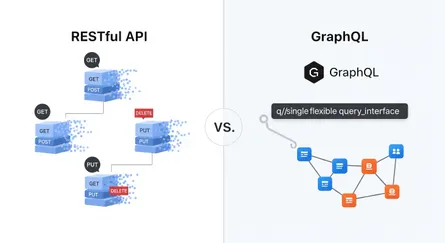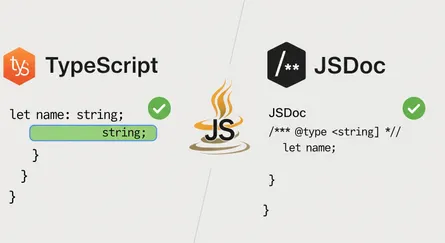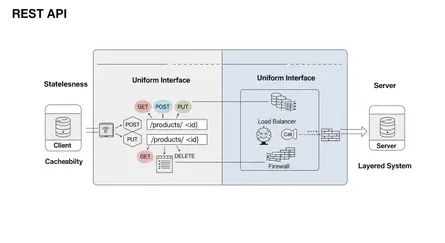In software development, over-engineering is a typical mistake that can result in more complexity, longer development periods, and superfluous functionality. This blog article discusses how to avoid over-engineering your code and provides insightful guidance to help you stay committed to writing effective, maintainable software.
What’s the Problem with Over-Engineering?
Over-engineering occurs when developers add unnecessary complexity to the program. This could manifest as too complicated solutions, superfluous features, or overly abstract ideas that don’t genuinely aid in solving the current issue.
- Enhanced Complexity: Understanding, maintaining, and debugging excessively complicated code becomes more challenging.
- Prolonged Development Times: Adding unnecessary features takes time and resources away from more crucial tasks.
- User Confusion: Complicated software may be difficult for users to navigate and confusing for them.
Preventing these issues requires understanding their root causes as well as effective treatment methods.
What Role Do Context and Human Factors Play?
Context and Human Factor significantly influence the tendency to over-engineer. Developers often have the best intentions but can be swayed by various factors:
- Perfectionism: A desire to create flawless, future-proof solutions can lead to adding unnecessary complexity.
- Fear of Change: Developers might over-engineer in an attempt to anticipate and accommodate every possible future requirement.
- Peer Pressure: In collaborative environments, there can be an implicit pressure to demonstrate advanced skills through complex solutions.
Understanding these human factors can help developers become more mindful of their decision-making processes.
What Are the Symptoms of Excessive Engineering?
Recognizing the Symptoms of Excessive Engineering is the first step toward addressing it. Here are some common signs:
- Overly Complicated Code: Code that uses complex patterns or structures without clear benefits.
- Redundant Features: Implementing features that are rarely or never used.
- Excessive Documentation: Detailed documentation for minor components, indicating a focus on trivial details rather than essential functionality.
- High Maintenance Overhead: Frequent and time-consuming maintenance tasks due to the code’s complexity.
By identifying these symptoms early, you can take corrective action before the situation escalates.
What Causes Over-Engineering?
There are various reasons why over-engineering occurs, such as:
- Lack of Clearly Stated needs: In an attempt to please everyone, developers may feel obliged to incorporate more functionality when demands are ambiguous or poorly expressed.
- False Assumptions: Believing that software is superior just because it is more complex or has more features.
- Inadequate Communication: When developers and stakeholders don’t communicate well, it might result in unbalanced priorities and unduly complex solutions.
To address these causes, it is vital to foster a culture that prioritizes simplicity and clarity, improve communication, and establish clear standards.
How to Avoid Over-Engineering?
Several important tactics are involved in avoiding over-engineering:
- Keep Your Eye on the Requirements: Recognize and follow the most recent requirements. Don’t introduce features based on suppositions or potential future developments.
- Accept Simplicity: Look for the most straightforward way to satisfy the needs. Whenever possible, use simple, understandable code.
- Iterate and Enhance: Use a methodical approach. Rather than striving to construct a perfect solution from the beginning, release a minimal viable product (MVP) and make improvements based on user input.
- Encourage Communication: To make sure that development initiatives are in line with company needs, keep the lines of communication open with all stakeholders.
- Review Code Frequently: Review code frequently to find and remove superfluous complexity.
How Does Over-Engineering Compare to Business Needs?
Understanding the relationship between Over-Engineering vs Business is crucial. Business needs should always drive software development, not the other way around.
- Value Delivery: Focus on delivering value to users. Over-engineering often distracts from this goal by diverting resources to unnecessary features.
- Cost Efficiency: Over-engineered solutions are typically more expensive to develop and maintain. Aligning development efforts with business priorities ensures better resource utilization.
- User Satisfaction: Simple, intuitive software enhances user satisfaction. Complex solutions can frustrate users and decrease engagement.
By keeping business needs at the forefront, developers can create software that is both effective and efficient.
Conclusion
Software projects can be derailed by over-engineering, which increases complexity, raises costs, and lowers user satisfaction. Developers can produce software that is easier to maintain and use by comprehending the signs and symptoms of over-engineering and implementing preventative measures. Never forget to embrace simplicity, link development with business goals, iterate based on feedback, and concentrate on clear requirements.
References
- Martin, Robert C. “Clean Code: A Handbook of Agile Software Craftsmanship.” Prentice Hall, 2008. (Chapters on Simplicity and Over-engineering.), [Link to a reputable source for the book or summary]
- Fowler, Martin. “Is Design Dead?” MartinFowler.com, 2004. (Discusses evolutionary design and avoiding premature complexity.), https://martinfowler.com/articles/designDead.html
- “KISS principle (Keep It Simple, Stupid).” Wikipedia.), https://en.wikipedia.org/wiki/KISS_principle
- “You Ain’t Gonna Need It (YAGNI).” Wikipedia.), https://en.wikipedia.org/wiki/You_aren%27t_gonna_need_it
- “The Perils of Over-Engineering” - (Example: Article from a software development blog like Coding Horror, Joel on Software, or a modern tech blog.), [Link to a relevant article]
- “Symptoms of Over-Engineering Your Software” - (Example: Article from a tech publication or development community.), [Link to a relevant article]
- “Agile Manifesto.” AgileManifesto.org. (Principles often guide against over-engineering.), https://agilemanifesto.org/
- “How to Balance Simplicity and Complexity in Software Design” - (Example: Discussion on Stack Exchange or a design-focused blog.), [Link to a relevant discussion or article]
- “The Lean Startup” by Eric Ries. (Focuses on MVP and iterative development, which helps avoid over-engineering.), [Link to a reputable source for the book or summary]
- “Code Smells: Over-Engineering” - (Example: Article from Refactoring Guru or similar site.), [Link to a relevant article on code smells]
- “Pragmatic Programmer: From Journeyman to Master” by Andrew Hunt and David Thomas. (Offers practical advice on writing maintainable code.), [Link to a reputable source for the book or summary]
- “Why Simplicity is the Key to Good Software Design” - (Example: Thought leadership piece from a respected developer or architect.), [Link to a relevant article]






